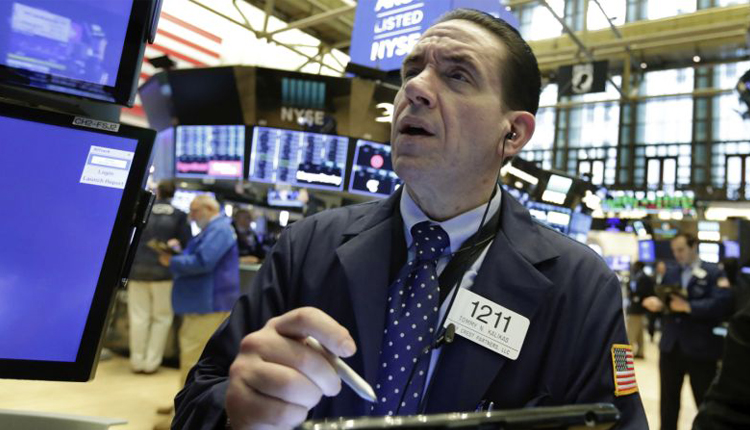U.S. stocks closed slightly higher Monday as investors shrugged off concerns over a tumultuous G-7 meeting over the weekend at which President Donald Trump lashed out at U.S. allies.
Wall Street also prepared for the hotly anticipated meeting between Trump and North Korea leader Kim Jong Un in Singapore, set to occur on Tuesday.
The Dow Jones industrial average finished 5.78 points higher at 25,322.31, with gains in UnitedHealth, Home Depot, and Boeing offsetting losses in McDonald’s and 3M. The S&P 500 rose 0.11 percent to close at 2,782 as a rise in telecommunications and consumer staples led the 11 sectors higher.
The Nasdaq composite finished up 0.19 percent at 7,659.93 amid a 1.29 percent rise in shares of Facebook and a 0.72 percent gain in Google-parent Alphabet.
President Trump and his administration escalated criticism of Canadian Prime Minister Justin Trudeau and international trade over the weekend at the annual G-7 summit that took place in Quebec, Canada.
The conclusion of the two-day summit, where Trump met with leaders from Europe and Canada, resulted in the U.S. incumbent refusing to endorse the joint G-7 statement that called for a reduction of tariffs — sparking tensions between him and fellow G-7 leaders.
He criticized Canadian counterpart Trudeau of “betrayal,” saying that the prime minister’s comments on U.S. tariffs were “very dishonest & weak.”
“Trump doesn’t care about convention at all. Therefore it creates an air of unpredictability that markets don’t really like,” said Maris Ogg, president at Tower Bridge Advisors. “Politics doesn’t usually play a chance in short-term market movement. But there’s a chance this week it could spill over and impact sentiment.”
Ogg added that while trade tensions or geopolitics could impact markets this week, second-quarter earnings — and how Wall Street reacts to them — are likely the most important factor for investors.
The Canadian dollar, plagued by fear of further trade tension, fell 0.4 percent against the dollar to C$1.298. The Mexican peso also weakened 1.4 percent to 20.575 pesos per dollar.
The global trade talks ended as the U.S. president headed to Singapore, where he’s set to meet with North Korean leader Kim Jong Un in a historic sit-down on Tuesday. The two are expected to discuss future relations and denuclearization, alongside other subjects.
While no major results are expected to come out of this initial meeting, investors hope the meeting will reinforce relations between the isolated state of North Korea and the rest of the world.
Despite trading woes and the summit with North Korea, U.S. Treasurys slipped across the board Monday, with the yield on the benchmark 10-year note rising to 2.95 percent. Bond yields move inversely with their prices.
Investors were also looking ahead to a meeting of the U.S. Federal Reserve, due to take place on Tuesday and Wednesday.
Fed Chair Jerome Powell and his colleagues are expected to announce a quarter-point increase in interest rates as it seeks to normalize monetary policy with the economy showing signs of health.
“Powell is likely to walk a very delicate line, continuing to fuel optimism in today’s moderate economy and providing justification for further Fed action, while at the same time giving a voice to the lingering skeptics that question the directional momentum of inflation,” said Lindsey Piegza, chief economist at Stifel Nicolaus.
Earlier this month, data revealed that the U.S. economy added 223,000 jobs in May, well ahead of economist expectations of 188,000 and adding to a growing pool of evidence that the economy is nearing full employment.
Last week, initial claims for state unemployment benefits also decreased 1,000 to a seasonally adjusted 222,000; economists had estimated an increase.
“The chairman will want to convey conviction in the committee’s decision to hike this week as well as in the implied rate hike anticipated come September,” Piegza added.
“They have broadly judged the U.S. economy to be sound with a further expected rise in price pressures while assuring market participants that they are entering further into higher rates with eyes wide open aware of the lingering risks.”
Source: CNBC


